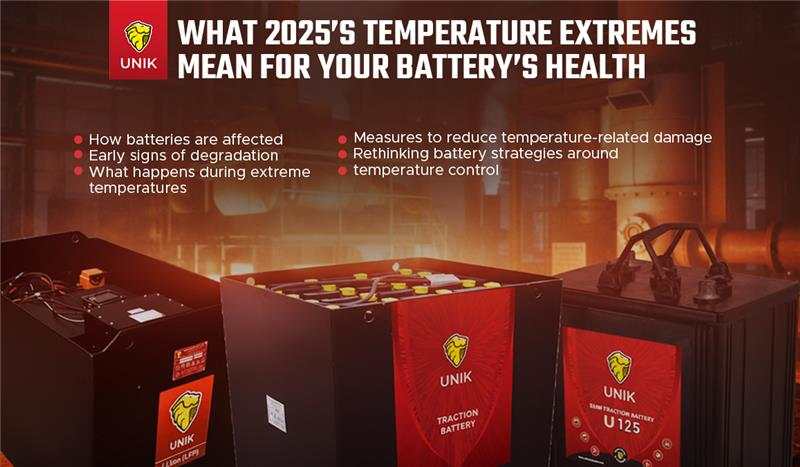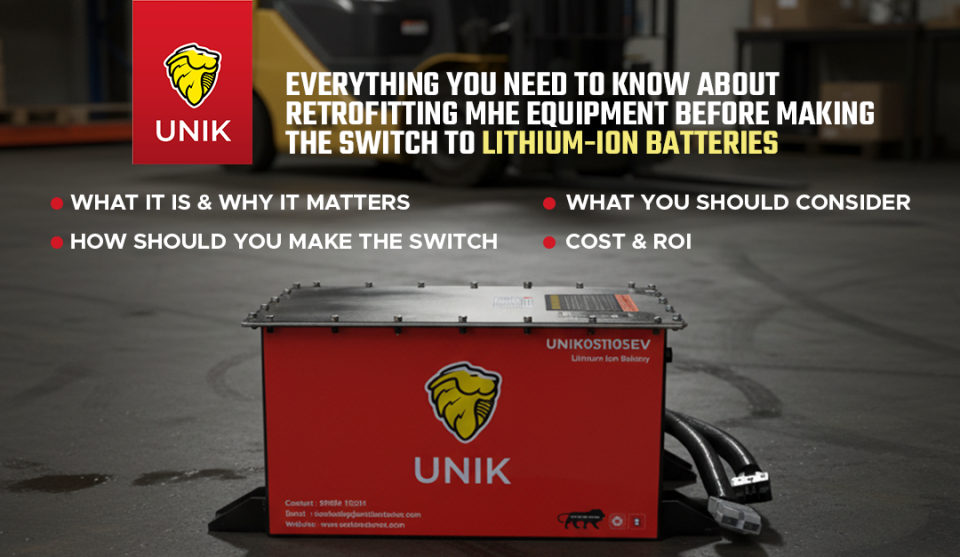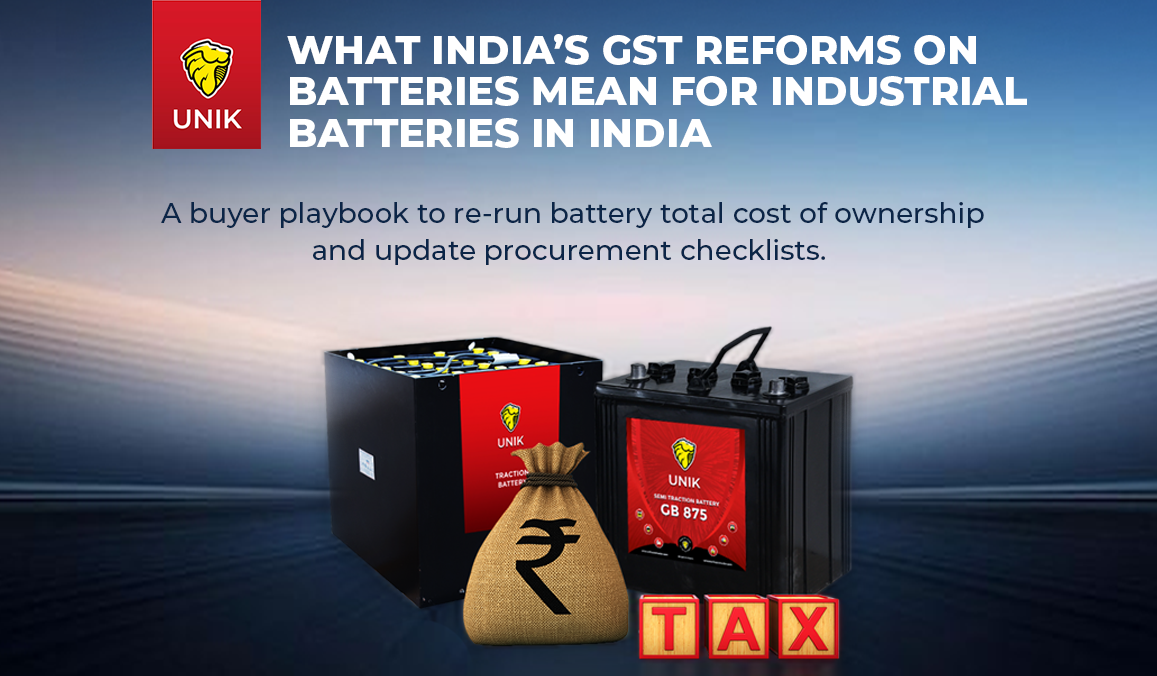The Benefits of Using Lithium-ion batteries in Forklifts
In today's fast-paced industries, material-handling equipment is essential for streamlining operations, increasing workplace safety, reducing rising labour costs and maximising ROIs.
Industrial operations use an array of material-handling equipment, including forklift trucks, pallet trucks, reach trucks, articulated forklifts, battery tuggers, forklift vehicles, and automated guided vehicles.
This equipment runs on battery power, so it is imperative to understand the various options available to power these forklifts based on one's usage, budget and maintenance capabilities.
The two significant batteries for forklifts are lead-acid batteries and lithium-ion batteries.
Lithium-ion Batteries Versus Lead Acid Batteries for Forklifts- The Changing Scenario
Despite being around for about 140 years, lead-acid batteries face stiff competition from lithium-ion battery technology, particularly in the battery-operated forklifts sector, owing to their numerous advantages in material handling efficiency.
This blog highlights the advantages of powering material handling equipment with lithium-ion batteries, such as higher performance, reliability, lower maintenance, cost savings, and fast return on investment (ROI).
Ease of Use & Charging
These batteries are engineered for convenient usage and ease of operation. A major advantage of lithium-ion batteries powering forklift vehicles is opportunity charging, which, if timed correctly, can provide seamless power around the clock during shifts.
The most crucial consideration for charging these types of batteries is ensuring the correct power specifications to match the battery requirements, which can be controlled through load management systems.
Battery Life
Lithium-ion batteries generally have a longer lifespan than traditional lead-acid batteries, which need regular maintenance to sustain optimum energy output and efficiency.
This is primarily because lead-acid batteries are more sensitive to charging conditions. Moreover, maintenance factors such as improper filling up with water, poor cleaning and charging, and not equalising can significantly impact a lead-acid cell's lifespan.
Battery Run-time
On average, lead acid batteries need uninterrupted charging for seven to ten hours daily, making shift operations challenging. The only solution to this constraint is a battery change or using multiple battery-operated forklifts for the same task. This utilises excessive space, funds and workforce, making it an unviable option for large operations.
Regardless of the State of Charge (SOC), lithium-ion batteries offer a reliable high-power supply that doesn't fluctuate during the discharge cycle, guaranteeing reliable vehicle operation. During standard material handling operations, electric forklifts powered by these batteries usually only need a couple of hours charging every shift to operate continuously.
Maintenance
Lead acid batteries are maintenance intensive, requiring heavy-duty upkeep weekly. These include replenishing the fluid levels with demineralised water to prevent damage, cleaning the poles to avoid oxidation, and keeping the battery clean to limit current leakage between cells.
Any negligence drastically impacts the life and performance of these batteries.
Conversely, lithium-ion batteries used in material handling require negligible maintenance. Maintenance for them includes simple routine activities such as checking the cables and connectors and wiping the dust.
Also, the existence of the BMS (Battery Management System) controls the current and usage along with the charging algorithm, hence providing better control of the usage of the battery.
Energy & Space Efficiency
Time, money and space can be saved because of the exceptional energy efficiency of lithium-ion batteries. They are powerful and compact while running for long periods with consistent performance.
On the other hand, even though lead-acid batteries are large and powerful for electric forklift trucks, if they are overcharged it leads to gassing and loss of electrolyte, which results in increased maintenance needs.
With no gassing process, low heat losses, and cutting-edge charging technology, lithium-ion batteries reduce environmental impact while maximising cost-savings. Lithium-ion batteries also take up much less room than their lead-acid equivalents. When lead-acid batteries are charged, they release an explosive H2 gas mixture; hence, a special chamber with safety precautions is required, which further takes up floor space.
Lower Total Cost of Ownership
Lithium-ion batteries offer a lower cost of ownership due to their higher longevity and lower expenditure on charging, labour, and maintenance.
Typically, these batteries provide a higher and quicker return on investment for material handling equipment within 2-4 years of purchase, subject to usage.
The increasing preference for lithium-ion batteries for material handling underscores their pivotal role in optimising performance, reliability, and return on investment in today's dynamic and fast-paced industrial environments. As industries prioritise efficiency, the switch to lithium-ion batteries emerges as a strategic investment for sustained growth and operational excellence.
Contact our team for more information on our lithium-ion batteries for forklifts and other material-handling equipment.






